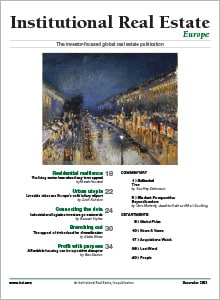Time: Why there’s never enough — and what to do about it
The most common complaint I hear from CIOs and real estate investment officers around the globe is that they are overwhelmed by the demands on their time. This is true even for those blessed with large staffs — although for most of you, you are also plagued with a lack of sufficient staff resources. Many of you are effectively one-person shows. And some of you are CIOs with no staff at all — you’re running the whole shooting match by yourself. By the way, I totally understand how you feel. No matter how our staff has grown over time, I have always felt like my job would be easier if I only had more time. And I have always felt that if I only had more staff, I would have more time.
